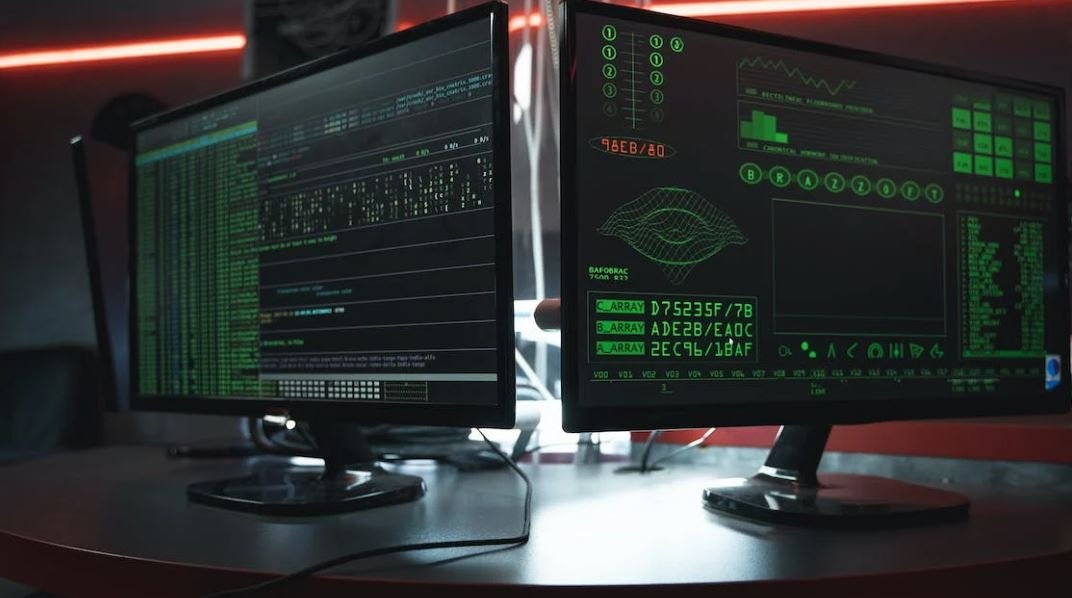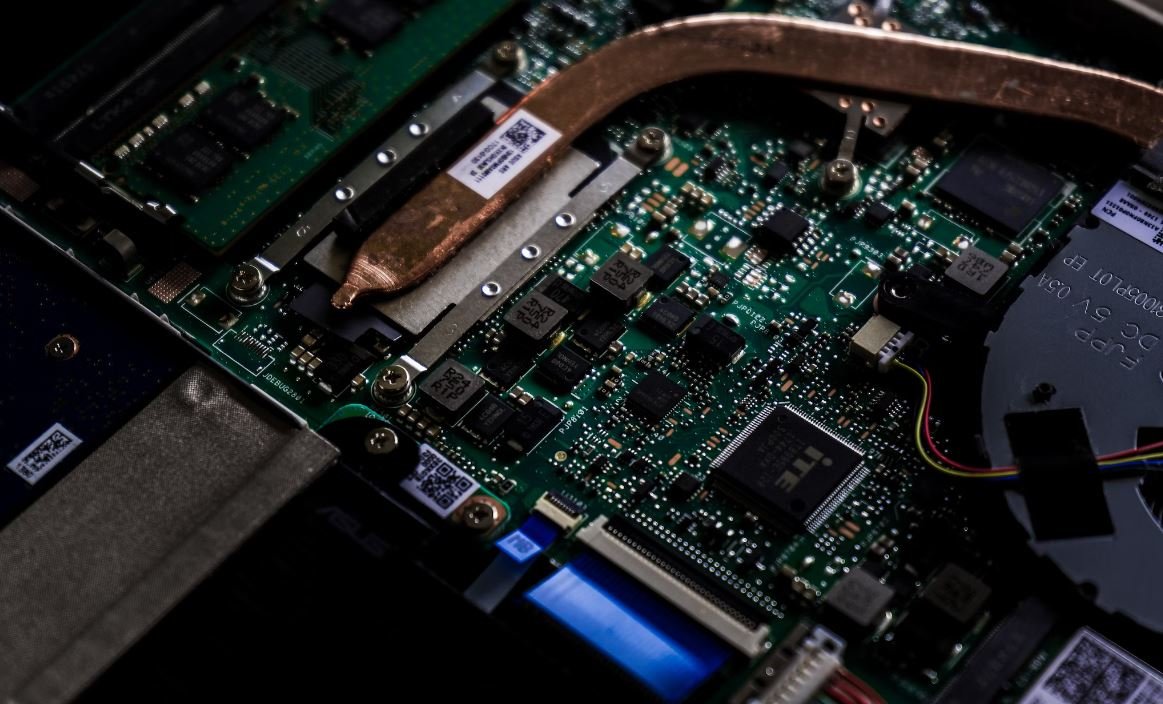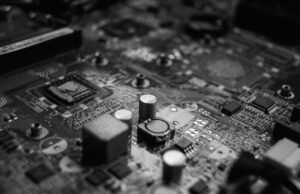Elon Musk Education Background
Elon Musk, the renowned entrepreneur and business magnate, is widely known for his ambitious ventures such as Tesla, SpaceX, and Neuralink. His educational background has played a significant role in shaping his career and approach to innovation. In this article, we will explore Musk’s educational journey, highlighting the key milestones and experiences that have contributed to his success today.
Key Takeaways:
- Musk pursued higher education in physics, business, and engineering.
- He dropped out of Stanford University to co-found Zip2.
- Elon Musk’s education laid the foundation for his entrepreneurial drive.
Early Education
Elon Musk was born in Pretoria, South Africa, on June 28, 1971. He attended Waterkloof House Preparatory School and later enrolled in Bryanston High School. As a child, Musk developed a deep interest in computing and technology, teaching himself programming at a young age. His passion for learning and exploring new ideas emerged early on, setting the stage for his future educational endeavors.
Elon Musk‘s curiosity led him to self-teach programming during his formative years.
University Years
After completing high school, Musk left South Africa to attend university in Canada. In 1989, he enrolled at Queen’s University in Kingston, Ontario, where he studied physics and economics. Musk embraced the challenges of a rigorous academic curriculum while simultaneously nurturing his entrepreneurial spirit.
Musk’s time at Queen’s University provided him with a strong foundation in physics and economics.
Following his studies at Queen’s University, Musk transferred to the University of Pennsylvania in the United States. At UPenn’s prestigious Wharton School, he focused on business and economics, earning a Bachelor of Science degree. While at Wharton, Musk collaborated with fellow students to launch Zip2, a software company that provided business directories and maps for newspapers.
Wharton School exposed Musk to the world of business and entrepreneurship, further fueling his ambitions.
Entrepreneurial Pursuits
In 1995, Elon Musk decided to halt his formal education and dropped out of Stanford University after just two days of enrollment. He co-founded Zip2, a company that aimed to revolutionize the newspaper industry by providing online business directories. The venture was successful, and in 1999, Compaq acquired Zip2 for $307 million.
Elon Musk‘s decision to drop out of Stanford shows his bold approach to pursue practical entrepreneurial opportunities.
After the sale of Zip2, Musk founded X.com, an online payment company that later became PayPal. The notable success of PayPal opened doors for Musk, and he subsequently ventured into various industries, including automotive, aerospace, and renewable energy.
Educational Milestones
Below are three tables providing an overview of Elon Musk‘s educational milestones:
| Degree | University |
|---|---|
| Bachelor of Science (Physics and Economics) | Queen’s University |
| Bachelor of Science (Business and Economics) | University of Pennsylvania |
| Company | Year Founded |
|---|---|
| Zip2 | 1995 |
| X.com (later became PayPal) | 1999 |
| Company Acquired | Year | Acquisition Price |
|---|---|---|
| Zip2 | 1999 | $307 million |
Enduring Influence
Elon Musk‘s education has been integral to his incredible success in the world of business and innovation. His multidisciplinary background in physics, business, and engineering has equipped him with a unique perspective, allowing him to tackle complex challenges in various industries.
Today, Musk continues to inspire entrepreneurs and aspiring innovators around the globe, showing that with relentless determination, a strong educational foundation, and the courage to take risks, anything is possible.

Common Misconceptions
Misconception 1: Elon Musk had a traditional education background
Contrary to popular belief, Elon Musk did not have a typical education background. Many assume that he went through the conventional route of attending prestigious universities and earning advanced degrees. However, Musk dropped out of Stanford University after just two days to pursue his entrepreneurial ambitions.
- Musk dropped out of Stanford University after only two days.
- He did not acquire any advanced degrees from renowned universities.
- Musk’s education was mostly self-taught and practical rather than formal.
Misconception 2: Elon Musk is a genius with exceptional academic accomplishments
While Elon Musk is undoubtedly a brilliant mind, it is incorrect to assume that he possesses exceptional academic achievements. Musk’s success is not solely attributed to his academic prowess, but his ability to think creatively, take risks, and learn from failures along the way.
- Musk’s success is not solely based on his academic achievements.
- He emphasizes the importance of practical experience and real-world application.
- Musk believes in learning from failures and iterating on ideas.
Misconception 3: Elon Musk has expertise in all the fields he ventures into
One common misconception is that Elon Musk is an expert in all the industries he ventures into, such as aerospace and electric vehicles. While Musk is involved in multiple industries and has achieved remarkable milestones, he often relies on a team of experts to bring his ideas to life.
- Musk relies on a team of experts to execute his ideas.
- He surrounds himself with talented individuals who specialize in various fields.
- Musk’s role is often more focused on leadership and strategic vision rather than expertise in every domain.
Misconception 4: Elon Musk’s success is solely attributed to luck
Some people believe that Elon Musk‘s success is purely a result of luck. However, this is a misconception as Musk’s achievements can largely be attributed to his relentless work ethic, perseverance, and ability to seize opportunities when they arise.
- Musk’s success is a result of his work ethic and determination.
- He takes calculated risks and seizes opportunities when they arise.
- Musk isn’t afraid to challenge the status quo and disrupt industries.
Misconception 5: Elon Musk had it easy and didn’t face any setbacks
Many wrongly assume that Elon Musk‘s journey to success was without any obstacles. On the contrary, Musk has faced numerous setbacks throughout his career, including failed business ventures and financial difficulties. These setbacks have taught him valuable lessons and fueled his determination to overcome challenges.
- Musk has faced setbacks and failures throughout his career.
- His failed ventures have taught him valuable lessons.
- Musk’s journey has been marked by perseverance and the ability to bounce back from adversity.

Elon Musk, the renowned entrepreneur and visionary behind companies such as Tesla and SpaceX, has a unique educational background that has undoubtedly played a significant role in his success. The following tables provide fascinating insights into Musk’s educational journey, highlighting his academic achievements, institutions attended, and areas of study.
Table: Elon Musk’s High School Education
+————————+———————-+
| High School | Notable Facts |
+————————+———————-+
| Pretoria Boys High | Attended at age 15 |
+————————+———————-+
Elon Musk’s academic journey began at Pretoria Boys High, an all-boys school in South Africa. Here, at the age of 15, he commenced his high school education, laying the foundation for his future accomplishments.
Table: Elon Musk’s Undergraduate Studies
+—————————-+————————+
| Institution | Field of Study |
+—————————-+————————+
| Queen’s University | Physics |
| University of Pennsylvania | Economics |
+—————————-+————————+
Following his high school years, Musk pursued his undergraduate studies in physics at Queen’s University in Canada. Later, he transferred to the University of Pennsylvania to pursue a degree in economics, broadening his insights beyond the realm of science.
Table: Elon Musk’s Postgraduate Studies
+———————————+—————————-+
| Institution | Field of Study |
+———————————+—————————-+
| Stanford University | Applied Physics (Ph.D.) |
| Stanford University(again) | Material Science |
| Stanford University(again) | Applied Physics |
+———————————+—————————-+
Continuing his pursuit of knowledge, Elon Musk embarked on several postgraduate endeavors at Stanford University. He initially pursued a Ph.D. in applied physics, delving into cutting-edge scientific research. Throughout his academic journey, he explored material science and further expanded his expertise in applied physics.
Table: Elon Musk’s Serial Entrepreneurial Ventures
+——————————–+——————————-+
| Entrepreneurial Ventures | Accomplishments |
+——————————–+——————————-+
| Zip2 Corporation | Online city guide software |
| X.com (later became PayPal) | Online payment system |
| Tesla Motors | Electric vehicle manufacturer |
| SpaceX | Private space company |
| SolarCity (now Tesla Energy) | Solar energy services |
| Neuralink | Neural technology |
| Boring Company | Infrastructure solutions |
+——————————–+——————————-+
Beyond academia, Elon Musk left an indelible mark on the business world. Through numerous ventures, he showcased his entrepreneurial prowess. Notable accomplishments include the creation of Zip2 Corporation, the pioneering of online payment systems with X.com (which later became PayPal), transforming the automotive industry with Tesla Motors, revolutionizing space exploration through SpaceX, and promoting sustainable energy with SolarCity.
Table: Elon Musk’s Philanthropic Efforts
+——————————————+—————————-+
| Philanthropic Endeavors | Notable Initiatives |
+——————————————+—————————-+
| Musk Foundation | Renewable energy and STEM education |
| XPRIZE Foundation (Sponsor) | Advancements in technology and innovation |
| OpenAI (Co-founder) | Artificial intelligence research and ethical considerations |
+——————————————+—————————-+
Elon Musk’s commitment to societal progress extends beyond his business endeavors. Through his philanthropic efforts, he actively contributes to various causes. The Musk Foundation focuses on renewable energy and STEM education, the XPRIZE Foundation sponsors groundbreaking technological advancements, and as a co-founder of OpenAI, Musk actively supports research in artificial intelligence and its ethical implications.
Table: Elon Musk’s Achievements and Recognition
+————————————-+———————————-+
| Achievements | Notable Recognition |
+————————————-+———————————-+
| Fortune’s Businessperson of the Year (2013) | Time Magazine’s 100 Most Influential People (2013) |
| Forbes’ World’s Most Powerful People (2019) | Bloomberg’s Billionaires Index (2020) |
| Edison Gold Medal (2019) | Royal Aeronautical Society Fellowship (2021) |
+————————————-+———————————-+
Elon Musk’s accomplishments have garnered widespread recognition. Named Fortune’s Businessperson of the Year in 2013, he also featured in Time Magazine’s 100 Most Influential People list. His influence extends to Forbes’ World’s Most Powerful People compilation, and he has earned a spot on Bloomberg’s Billionaires Index. Furthermore, Musk has received prestigious accolades such as the Edison Gold Medal and was honored with a fellowship from the Royal Aeronautical Society.
Conclusion:
Elon Musk’s educational background showcases a combination of both scientific expertise and business acumen. From his early education in South Africa to his postgraduate pursuits at Stanford University, the diverse knowledge he acquired shaped his entrepreneurial ventures in fields as varied as technology, transportation, energy, and space exploration. Musk’s relentless pursuit of innovation, coupled with his philanthropic endeavors, have made him an influential figure in the world of entrepreneurship and a driving force behind transformative advancements.
Elon Musk Education Background
Frequently Asked Questions
What is Elon Musk’s educational background?
Did Elon Musk pursue any further education after graduating?
Did Elon Musk have any educational experiences that contributed to his success?
Did Elon Musk receive any formal business education?
Was Elon Musk involved in any academic research during his education?
Did Elon Musk receive any notable recognition or awards for his educational achievements?
How did Elon Musk’s educational background influence his ventures?
How does Elon Musk’s educational background differ from traditional career paths in his industries?
Did Elon Musk’s educational background contribute to his interest in sustainable energy and space exploration?
Are there any books or resources recommended to gain insight into Elon Musk’s educational background and experiences?




